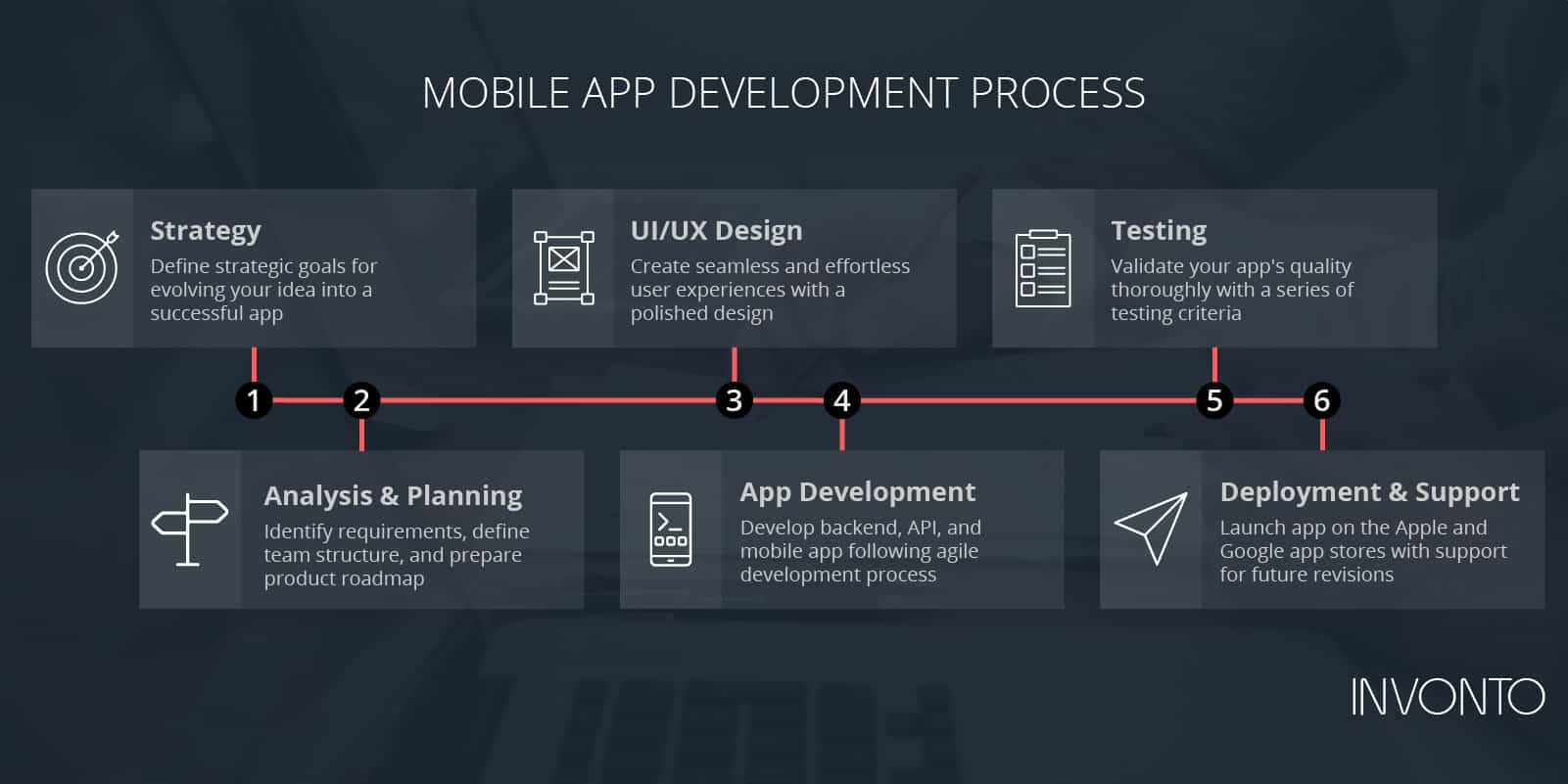How to Develop a Mobile App: A Step-by-Step Guide for Beginners – How to Develop a Mobile App A Step-by-Step Guide for Beginners is your gateway to entering the exciting world of mobile app development. With the rapid growth of smartphone usage, creating an app has never been more relevant or rewarding. Whether you have a brilliant idea or are simply curious about how apps are made, this guide will walk you through the essential steps from conception to launch, ensuring that you gain the knowledge and confidence needed to transform your vision into a functional application.
In this guide, we will explore the fundamental aspects of mobile app development, covering everything from defining your app’s purpose and audience to choosing the right technology and design. Whether you’re a complete novice or someone with minimal experience, our step-by-step approach will help demystify the process and empower you to start your journey in app creation.

In today’s fast-paced world, the importance of mental health has become increasingly recognized. It is no longer a topic that resides in the shadows; rather, it has stepped into the limelight, with people beginning to understand its significance in their daily lives. Mental health encompasses our emotional, psychological, and social well-being, influencing how we think, feel, and act. It also plays a vital role in determining how we handle stress, relate to others, and make choices.One of the primary reasons mental health is crucial lies in its direct impact on physical health.
Research has shown that mental health disorders can lead to a variety of physical health problems. For instance, conditions such as anxiety and depression can manifest in physical symptoms, including fatigue, insomnia, and even chronic pain. Conversely, poor physical health can negatively affect mental health, creating a vicious cycle that can be challenging to break. Therefore, maintaining a balance between physical and mental health is essential for overall well-being.Moreover, mental health influences our relationships with others.
Healthy mental well-being enables us to communicate effectively, nurture friendships, and build strong family bonds. Individuals dealing with mental health issues may find it difficult to connect with others, leading to feelings of isolation and loneliness. This can further exacerbate their condition, making it crucial to foster an environment that promotes open discussions about mental health. By encouraging conversations around mental wellness, we can help reduce stigma and ensure that those in need feel supported and understood.In educational settings, mental health plays a pivotal role in the success of students.
A student struggling with mental health challenges may have difficulty concentrating, completing assignments, or participating in class discussions. This can lead to poor academic performance, affecting future opportunities and self-esteem. Schools and educational institutions increasingly recognize the need for mental health support and are implementing programs to address these challenges proactively. By providing resources such as counseling services, workshops on coping strategies, and mental health education, schools can help students thrive both academically and emotionally.In the workplace, mental health is equally significant.
Employees who experience mental health issues may struggle with productivity, creativity, and job satisfaction. Employers who prioritize mental well-being within their organizations tend to reap the benefits of a more engaged and motivated workforce. Companies that offer mental health resources, such as Employee Assistance Programs (EAPs) or mental health days, create an environment where employees feel valued and supported. This, in turn, can enhance overall job satisfaction and reduce turnover rates, ultimately benefiting the organization as a whole.The role of social media in mental health cannot be overlooked.
In today’s digital age, people are more connected than ever through various platforms. While social media can serve as a valuable tool for connecting with others and sharing experiences, it can also contribute to feelings of inadequacy and anxiety. The constant comparison to curated online lives may lead individuals to develop unrealistic expectations for themselves. It’s essential for users to approach social media mindfully, recognizing the impact it can have on their mental well-being.
Taking breaks from social media or curating one’s feed to include positive and uplifting content can help mitigate negative effects.Mindfulness and self-care practices are vital components of maintaining mental health. Engaging in activities that promote relaxation and stress relief, such as meditation, yoga, or even simple breathing exercises, can significantly reduce anxiety levels. Additionally, self-care routines, which can include hobbies, exercise, or spending time in nature, allow individuals to recharge and reconnect with themselves.
Establishing a self-care regimen can be a proactive approach to preventing mental health issues and enhancing overall quality of life.Support systems play a critical role in mental wellness. Friends, family, and peer support can provide essential encouragement and understanding during challenging times. For those struggling with mental health issues, having a support network can make all the difference. It is important for individuals to cultivate relationships with those who foster positivity and understanding.
Furthermore, reaching out for professional help when needed is a sign of strength, not weakness. Mental health professionals can provide invaluable support, guidance, and treatment options tailored to individual needs.It’s vital to note that mental health is a spectrum; everyone experiences fluctuations in their mental well-being throughout their lives. Recognizing the signs of mental distress early on can lead to timely intervention, which is crucial for effective treatment.
Common signs to be aware of include prolonged feelings of sadness, irritability, withdrawal from social activities, drastic changes in mood or behavior, and difficulty concentrating. Being aware of these signs in oneself and in others can help foster a culture of support and understanding.In conclusion, the conversation surrounding mental health is expanding, and it is essential to continue raising awareness.
Prioritizing mental health should be a collective effort—individuals, families, communities, and organizations all have a role to play. By fostering open discussions about mental well-being, providing necessary resources, and creating supportive environments, we can work towards a society where mental health is valued and prioritized. Remember, it’s okay to ask for help, and taking care of your mental health is just as important as taking care of your physical health.
Together, we can break the stigma and create a brighter future for mental wellness for everyone.



